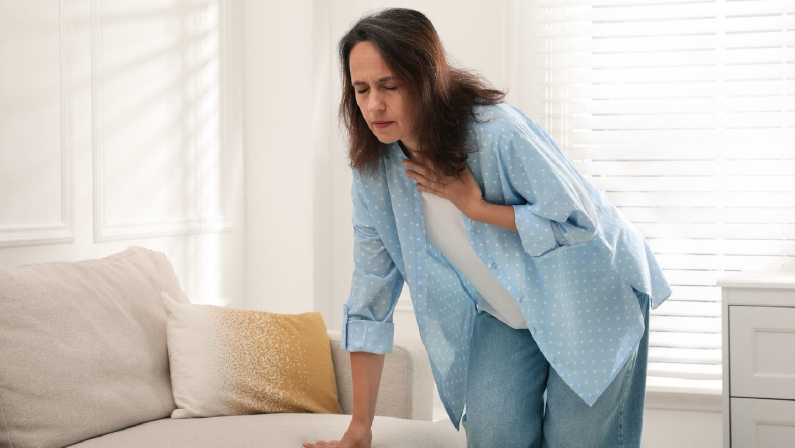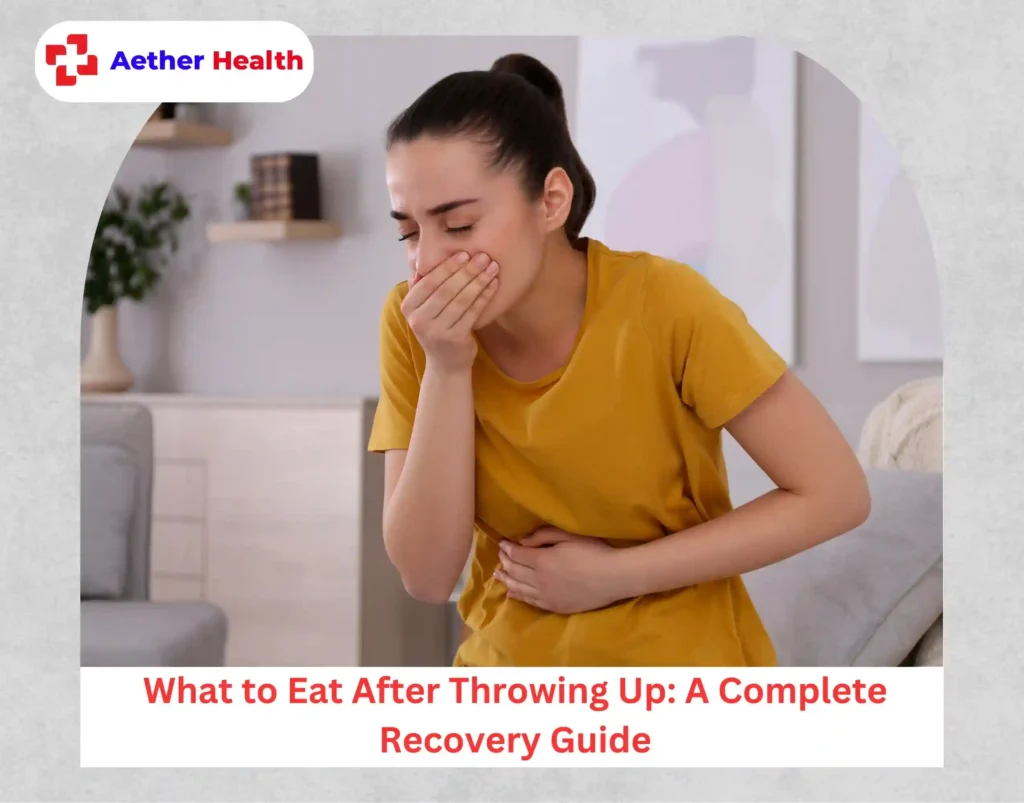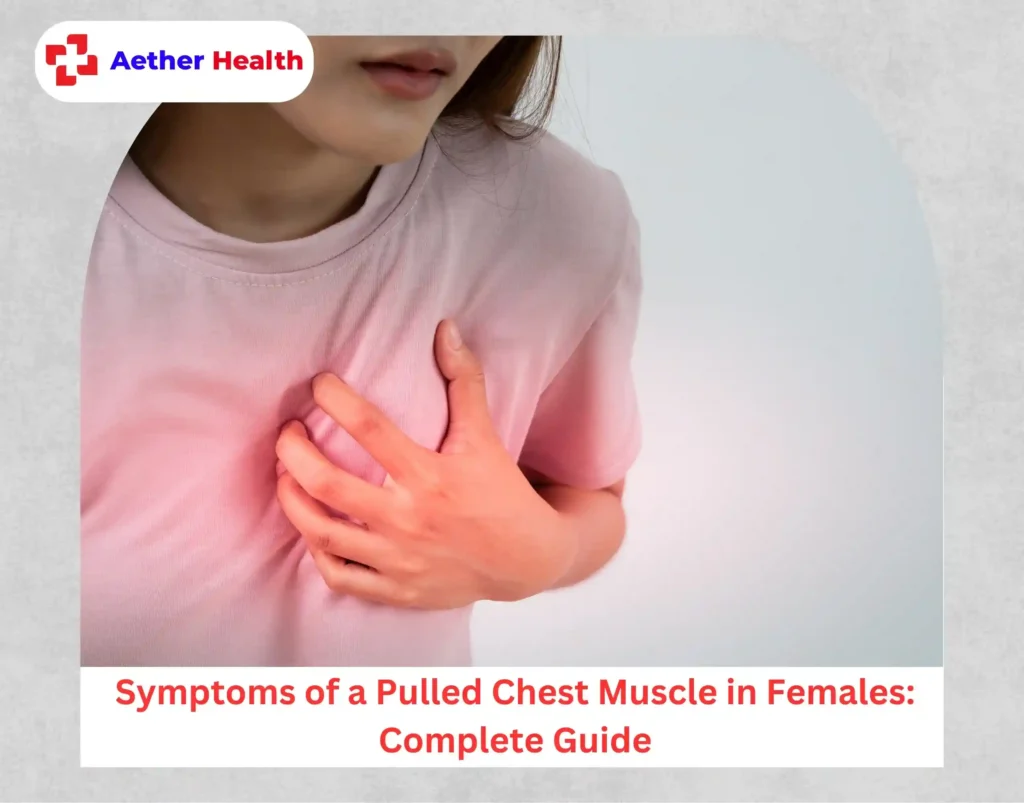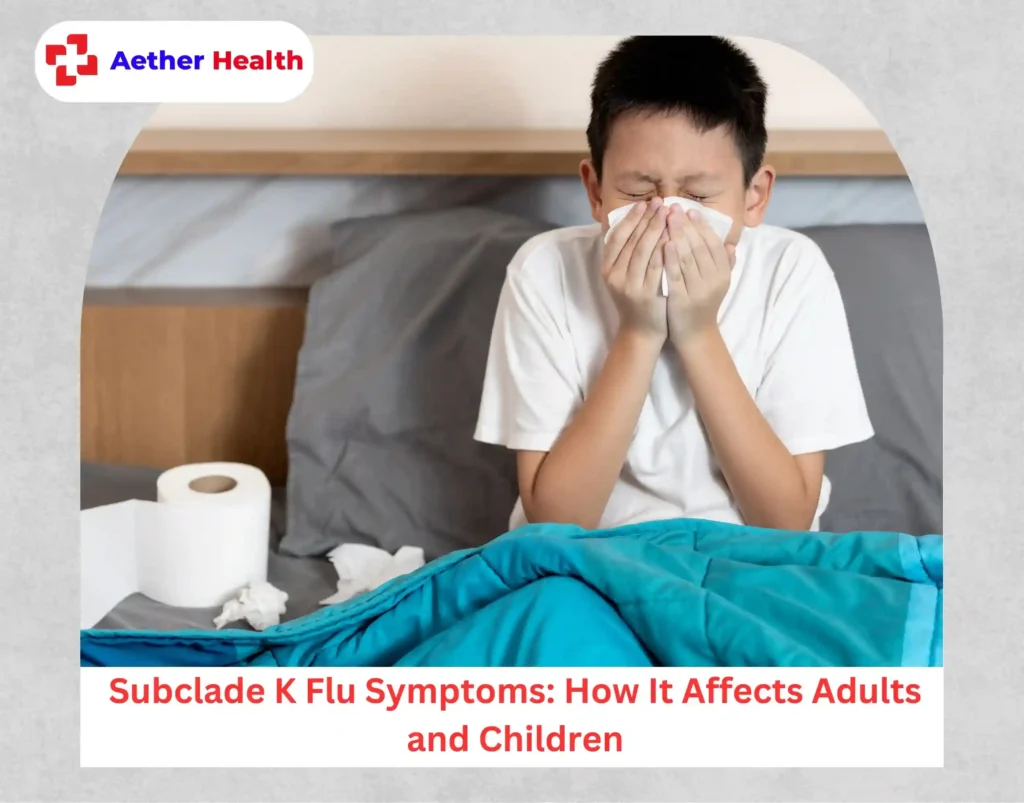Dehydration is a common issue, especially during hot weather or physical activity. While thirst is the most obvious sign, dehydration can also lead to some surprising symptoms, including heart palpitations. This article explores the connection between dehydration and palpitations, offering insights into prevention and treatment.
What Causes Dehydration?
Dehydration happens when your body loses more fluids than it takes in. This imbalance can stem from several factors. Hot weather and exercise cause you to sweat, releasing fluids. Conditions like diarrhea and vomiting also lead to rapid fluid loss. Certain medications, like diuretics, can increase urination and dehydration if you don’t replenish fluids.
Not feeling thirsty can be misleading. Thirst is a sign your body needs fluids, so not drinking enough even when you don’t feel thirsty can lead to dehydration over time. This can be a risk for older adults or those on medications affecting thirst. Limited access to clean water can also make it difficult to stay hydrated.
Can Dehydration Cause Palpitations?
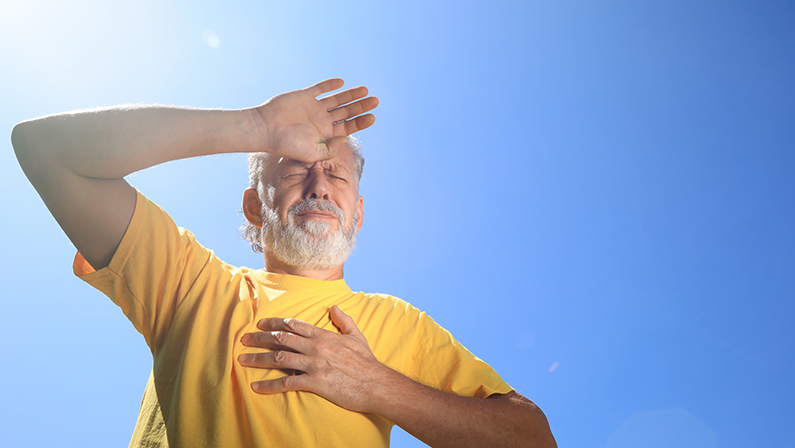
If you’re asking yourself, “Will dehydration cause palpitations?” the answer is yes. Dehydration can cause palpitations or that fluttering or racing sensation in your chest.
Here’s why:
- Decreased blood volume: When you’re dehydrated, your blood volume decreases. To compensate, your heart needs to beat faster to circulate the remaining blood effectively. This increased heart rate can manifest as palpitations.
- Electrolyte imbalance: Electrolytes are minerals like sodium and potassium that play a crucial role in heart function. Dehydration can disrupt electrolyte balance, which can contribute to irregular heartbeats and palpitations.
What Do Dehydration Palpitations Feel Like?
Dehydration palpitations can be a disconcerting experience, causing a range of sensations in your chest and neck that can vary from person to person.
Here’s a breakdown of some common feelings:
Fluttering
Think of a butterfly gently flapping its wings in your chest. This fluttering sensation is a frequent description of dehydration palpitations. It might feel light and erratic, but not necessarily painful.
Racing heartbeat
You might experience a sudden increase in your heart rate, feeling like your heart is pounding much faster than usual. This can be accompanied by a feeling of anxiety or nervousness due to the increased heart rate.
Skipped beats
This can feel like a momentary pause or hesitation in your heartbeat, as if your heart misses a beat or two entirely. This sensation can be startling and cause momentary dizziness.
Pounding
This is a more intense feeling, like a strong, forceful thumping in your chest or neck. It can be quite noticeable and even feel like your heart is about to jump out of your chest. This can be the most alarming symptom and might be accompanied by shortness of breath.
It’s important to remember that these symptoms are usually temporary and resolve with proper rehydration. However, if you experience any of these sensations along with chest pain, difficulty breathing, dizziness, or fainting, seek immediate medical attention.
How Do You Stop Heart Palpitations and Recover from Dehydration?
Dehydration-induced heart palpitations can be unsettling, but the good news is they’re often treatable with simple home remedies.
Here’s what you can do to calm your heart and recover from dehydration:
1. Rehydrate
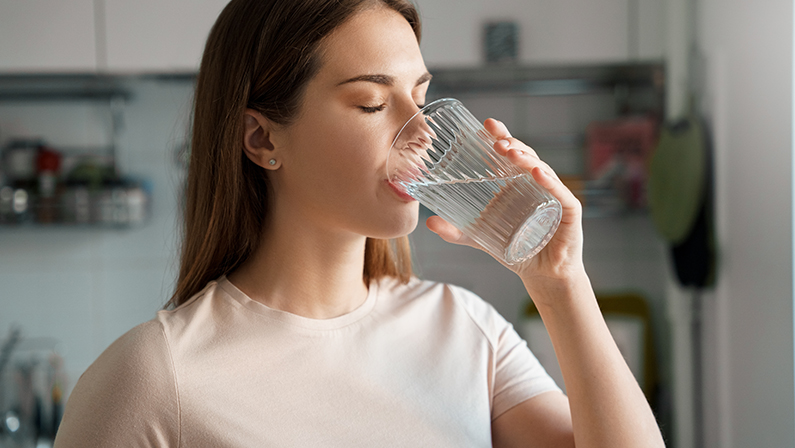
This is the key step. Sip on cool water gradually, allowing your body to absorb the fluids effectively. Avoid sugary drinks or excessive caffeine, as they can worsen dehydration. If you’re asking, “does dehydration cause rapid heart rate,” the answer is yes. As you rehydrate, your blood volume increases, and your heart doesn’t need to work as hard, leading to a slower heart rate and a lessened feeling of palpitations.
2. Rest and Relaxation
Take some time to rest and avoid strenuous activity until your symptoms improve. This allows your body to focus on rehydration and recovery.
3. Cool Down
If you’ve been sweating heavily due to exercise or hot weather, move to a cool, air-conditioned area to help your body regulate its temperature. This can further reduce strain on your heart.
4. Monitor Your Symptoms
As you rehydrate, pay attention to how you feel. If your palpitations improve and other symptoms of dehydration subside, you’re on the right track.
If your palpitations from dehydration persist even after drinking water or electrolyte drinks, or if you experience chest pain, difficulty breathing, dizziness, or fainting, seek immediate medical attention.
Is There Anything You Can Do to Prevent Future Dehydration and Related Heart Palpitations?
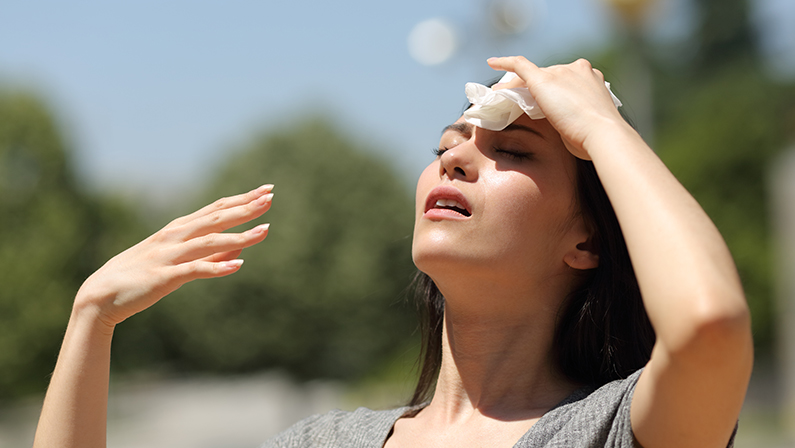
Absolutely! By incorporating these simple habits into your daily routine, you can significantly reduce your risk of dehydration and the associated discomfort of irregular heartbeats:
1. Stay Ahead of Thirst
Don’t wait until you feel thirsty to drink water. Thirst is already an indicator of dehydration. Aim to sip on water throughout the day, even if you don’t feel parched. Carry a reusable water bottle and make it a habit to take frequent sips.
2. Be Mindful of Fluid Loss
Certain situations can increase fluid loss. Drink plenty of water before, during, and after exercise, especially in hot weather. If you have diarrhea or vomiting, be extra vigilant about rehydration with water or electrolyte-rich solutions recommended by your doctor.
3. Monitor Your Urine Color
Your urine color can be a helpful indicator of hydration status. Pale yellow urine indicates proper hydration, while dark yellow urine suggests dehydration. Aim for a consistently pale yellow color.
4. Embrace Water-Rich Foods
Supplement your water intake with water-rich fruits and vegetables like watermelon, cucumber, celery, and leafy greens. These foods provide essential vitamins and minerals while contributing to your daily fluid needs.
5. Consider Electrolyte Replacement
If you sweat heavily during exercise or live in a hot climate, consult your doctor about electrolyte replacement drinks or tablets. Electrolytes play a crucial role in maintaining proper heart function, and dehydration can disrupt their balance, potentially leading to irregular heartbeats.
By following these tips, you can ensure your body stays adequately hydrated, preventing dehydration and irregular heartbeats. Remember, proper hydration is vital for overall health and well-being, so make it a priority!
Summer Wellness at Aether Health
While staying hydrated is essential year-round, it’s particularly important during the summer months. Here at Aether Health, we understand the importance of prioritizing your well-being throughout the hot season.
In addition to urgent care services, we offer a variety of solutions to help you beat the heat and ensure optimal hydration:
Summer IV Hydration
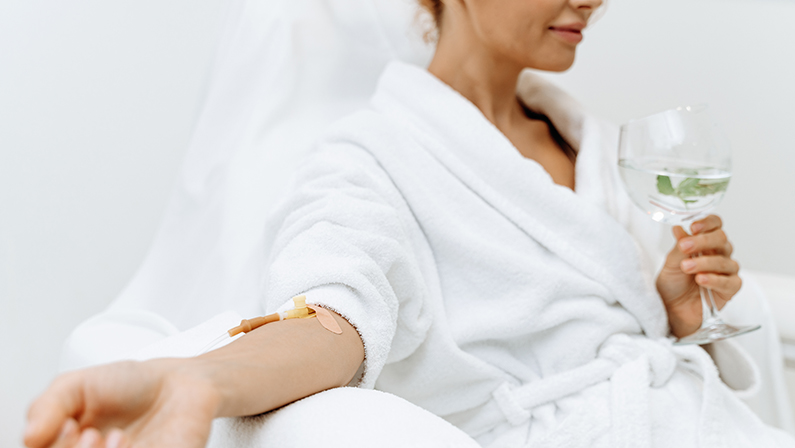
Replenish electrolytes lost through sweating with our customized IV hydration therapy. This intravenous treatment delivers fluids and essential nutrients directly into your bloodstream, promoting faster and more effective rehydration compared to drinking fluids alone.
Vitamin Infusions
Give your body the extra boost it needs to thrive during the summer with a revitalizing vitamin infusion tailored to your specific needs. Our vitamin infusions can help combat fatigue, enhance immunity, and promote overall well-being.
Drug Detox Treatment
If you’re struggling with substance abuse, Aether Health can also help. We offer comprehensive drug detox programs designed to safely manage withdrawal symptoms and create a foundation for long-term recovery.
Aether Health: Your Partner in Health and Wellness
We can handle your urgent care needs as well. Whether you experience a sudden injury or require immediate medical attention for any concern, our team of qualified healthcare professionals at Aether Health is here to help.
When Should You See a Doctor or Other Healthcare Professional?
While dehydration-induced heart palpitations often resolve with rehydration at home, there are situations where seeking medical attention is crucial.
Here’s when to consult a doctor:
Persistent Palpitations
If your heart palpitations persist even after rehydration attempts, or if they become more frequent or intense, see a doctor. This could indicate an underlying heart condition unrelated to dehydration.
Severe Symptoms
Seek immediate medical attention if you experience severe symptoms along with your palpitations, such as:
- Chest pain, tightness, or pressure
- Difficulty breathing
- Dizziness or fainting
- Confusion
- Excessive sweating
Known Heart Conditions
If you have a pre-existing heart condition, consult your doctor if you experience any heart palpitations, even if mild. They can assess if dehydration is a trigger or if there’s a different cause for concern.
Sudden Change
If you experience a sudden onset of severe heart palpitations unlike anything you’ve felt before, especially if accompanied by other concerning symptoms, seek immediate medical attention.
Remember, it’s always better to err on the side of caution. If you’re unsure about the cause of your palpitations or have any worries, consulting a doctor is the safest course of action. They can perform tests to diagnose the cause and recommend appropriate treatment.
FAQs
Here’s a quick answer to some frequently asked questions about dehydration and heart palpitations:
Can Dehydration Cause a Fast Heart Rate?
Yes, dehydration can lead to a faster heart rate. As your body loses fluids, blood volume decreases. To compensate and circulate blood effectively, your heart has to work harder, causing a faster heart rate.
Can Drinking Water Help with Heart Palpitations?
If dehydration is causing your palpitations, drinking water can definitely help. Rehydration restores blood volume and electrolyte balance, which can alleviate the symptoms of dehydration-induced heart palpitations.
Why is the heart rate high when dehydrated?
When dehydrated, your blood volume drops, making it harder for your heart to pump blood efficiently. To compensate for this and deliver enough oxygen throughout your body, your heart rate increases. Additionally, dehydration disrupts electrolyte balance, which can interfere with the electrical signals controlling your heartbeat, potentially leading to a faster or irregular heart rate.
Stay Hydrated and Know When To Seek Medical Help
Dehydration can lead to a variety of health concerns, including heart palpitations. By staying hydrated and adopting preventative measures, you can minimize your risk of experiencing these uncomfortable symptoms.
However, if you experience severe or persistent palpitations alongside other concerning symptoms, don’t hesitate to seek medical attention.For prompt emergency care in Pearland, visit the trusted professionals at Aether Health. This trusted emergency room in Pearland offers 24/7 emergency care equipped to handle various heart-related concerns, including irregular heartbeats. Check in online or visit any of Aether Health’s convenient locations for faster medical attention. Hydrate smart, listen to your body, and prioritize your well-being.
